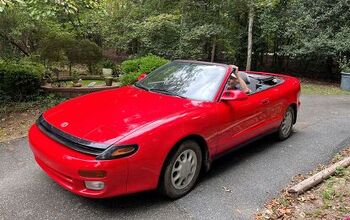EPA Might Deregulate Vehicle Emissions

The Environmental Protection Agency is moving to roll back one of the most consequential regulations in U.S. automotive history.
Key Points
- The EPA has proposed rescinding the 2009 Endangerment Finding, which would end federal regulation of greenhouse gas emissions from new cars, trucks, and SUVs.
- If enacted, automakers would no longer be required to measure or limit CO₂, methane, or other greenhouse gases, though standards for pollutants like carbon monoxide and particulates remain.
- The rollback is framed as a cost-saving measure for consumers and manufacturers, but automakers are expected to keep developing cleaner technologies to meet strict emissions rules in global markets.
The agency is formally proposing to scrap the 2009 Endangerment Finding that declared greenhouse gases a threat to public health—a landmark decision that provided the legal foundation for every vehicle-related greenhouse gas regulation in the last 15 years.
If finalized, the EPA's proposal would effectively eliminate all requirements for automakers to measure and comply with greenhouse gas emission standards in new cars, trucks, SUVs, and commercial vehicles. Manufacturers would still be required to limit pollutants like carbon monoxide, oxides of nitrogen, and particulates, but carbon dioxide, methane, nitrous oxide, and hydrofluorocarbons would no longer be regulated under the Clean Air Act.
The EPA argues that greenhouse gas rules make vehicles more expensive for consumers and businesses, raising costs for everything shipped by truck. The agency believes lifting these standards will revive the U.S. auto industry by easing compliance costs and bringing manufacturing jobs back.
The play is in line with President Donald Trump’s executive order signed in January, which directed all government agencies to “unleash American energy” by cutting emissions-related regulations. Public hearings will take place in August, with a final decision expected after the September 15 comment deadline.
Importantly, the change won't affect smog checks or regulations on pollutants like carbon monoxide or particulates— nor does it eliminate Corporate Average Fuel Economy standards outright—though penalties for failing to meet them have already been reduced to zero as part of the Big Beautiful Bill earlier this summer.
In its proposal, the EPA says, “We are not proposing to reopen or substantively revise any emission standards for criteria pollutants or hazardous air pollutants or to reopen or substantively revise any regulatory provisions related to NHTSA’s CAFE standards.”
For now, you should view the EPA’s proposal as a reprieve for larger combustion engines, potentially extending the shelf life of V8s and other traditional powertrains—though don't expect automakers to develop new ones, they'll likely just keep the old ones in production for longer. With political control in Washington potentially changing in 2026 or 2028, regulations could snap back and possibly become stricter under a future administration.
Become an AutoGuide insider. Get the latest from the automotive world first by subscribing to our newsletter here.

An experienced automotive storyteller and accomplished photographer known for engaging and insightful content. Michael also brings a wealth of technical knowledge—he was part of the Ford GT program at Multimatic, oversaw a fleet of Audi TCR race cars, ziptied Lamborghini Super Trofeo cars back together, been over the wall during the Rolex 24, and worked in the intense world of IndyCar.
More by Michael Accardi



































Comments
Join the conversation
In 86 I had a v8 malibu that put out 120 hp and 12mpg. Today I own a Mazda CX 5 turbo that puts out 250 hp and 24 mpg. That efficiency improvement is a direct result of EPA regulations. Trumps deregulation efforts will spin us back to the dark ages where domestic manufacturers will have no incentive to compete and what we may get are updated Pintos and Vegas.
See, the media does report good news once in a while!